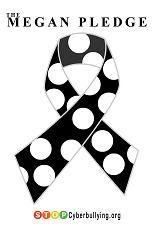Good ol' abfh. She gives me so much to blog about.
There is a sort of tension that runs through the "autism community" between autistic people and parents who are raising autistic people. Often this tension is constructive in its way. Most "autism parents" don't have autism, and they are working hard to understand how to best support and work with their children. Hearing from people who actually have autism is a huge help in trying to consider the way autistic people see and experience the world, the consequences of decisions made on a child's behalf. How does one advocate effectively and respectfully?
In our latest episode, abfh takes on the term "meltdown." It is, indeed, a term that causes consternation, because it is, in its essence, a negative term for a negative situation. In the comments, I noticed that commenters were concerned about the definition of the term. Abfh is concerned that a normal child's whining or tantrum is viewed differently than one had by an autistic child. These are very valid concerns, and ones that can very well feed into a stereotype of autism causing violence. However, I found abfh's example to be way off- feeding into the idea that parents of autistic kids are "faking it", that their lives are no different from other parents, if they would just suck it up and see their autistic kids in the same light as their non-autistic children.
In other words, if we're tired and drained and feeling depressed and having trouble raising our disabled kids, it is... see it coming?... our own damn fault.
Now, this ain't no pity party. This isn't about oh poor me I have an autistic child and life sucks. Because I don't feel that way. Life is great. My boys are beautiful. Unique and beautiful.
Joey is not a violent person. He's very laid back, easy going. Andy is my loose cannon. I would have to say, anecdotally, that non-autistic people, especially those with sensory issues, are more likely to be violent than non-autistic people, even when both persons are generally described as peaceful, well-behaved kids. When I hear that all-too-familiar "crack" sound in the back seat, I can lay my money on who hit whom with a better than 50/50 odds.
However, situations are very different. Joey tends to be unexpectedly explosive. He got frustrated with a task last week and struck his aide. If a non-autistic child struck a teacher, they would be suspended. Why wasn't Joey? By understanding his frustration and his problems with impulse control, focus, language, and frustration tolerance, are we contributing to a stereotype of violence?
How about we take another look at the mom in the grocery store? I know this scenario quite well. One child is autistic, the other one isn't. If Joey gets overwhelmed, we have a meltdown (or used to). If Andy whines about wanting a toy, we call that a whinefest. What is the difference?
Any child who is hitting (themselves or others), biting (themselves or others), flailing, tossing their bodies into walls (or floors, or furniture, or people), and/or smacking their heads against surfaces (or people), usually while screaming (but not always) is having a meltdown. I don't care what triggered the behavior. I don't care if the person is autistic, not, or from another planet. The complete loss of functionality and control is, for us, the very mark and essence of a meltdown. All sensory systems go into overload. Communication systems often shut down partially or completely. Self-regulation shuts down. Yes, folks- welcome to Chernobyl.
When Andy wants a toy, it may be loud, inconvenient, and annoying. I understand there are children who then escalate to meltdown over toys, but I have never seen it. If Andy started smacking me over a toy, biting himself, or flailing, I would leave the store immediately in order to contain the situation. If I knew he did this regularly, I would not bring him to the store- in other words, I would do for him as I would do for Joey: recognize triggers as best I could, and work to either manage them or avoid them. But he doesn't.
When Joey gets truly overwhelmed, he descends quickly into meltdown. Joey has never had severe issues in the store, but he often has difficulty with motor tasks such as dressing- a task that often lead to meltdowns when I began this blog. HE would get overwhelmed with the frustration, put his face as close as he could to mine and scream his lungs out. Unless I acted quickly, he would then proceed to bite his wrists. This is a level 3 meltdown. For us, unless it is dramatic and involves the possibility of injury, it isn't a meltdown. The screaming and loss of function is level one. Flailing is level 2. Biting is our proceeding to level 3.
When I say Joey has had a level 10 meltdown, I am talking about a dangerous situation. Our level 10s are not the worst I have heard of, but they are our worst- and they are very violent and physical situations. Yes, Joey has had level 10s in public. It has, thankfully, been a long time.
Do non-autistic kids have meltdowns? Yes. Yes they do. Do autistic kids have more? In my experience, yes, they do. Non-autistic kids do not face the kind of constant frustrations that autistic kids do, so non-autistic kids do not have the impetus to meltdown as much. Does that make autistic kids more violent? No, but it can mean more effort is needed to support these kids, to manage triggers and provide self-regulation skills, so that their frustration and anxiety levels are more comparable to non-autistic kids.
One thing I have learned- and yes, I mean that I didn't know it before- is that no person melts down without a reason. I may not know the reason, but there is one. As I am the adult, it is my job to figure out the puzzle and discover what is feeding into the child's frustration (not just the trigger). It may not be a single reason- a build up of frustrations can cause a person to act out, tantrum, or melt down. That is important information to disseminate.
The stereotype of the violent autistic is not because autistic people melt down, but because people not familiar with autism do not understand the triggers and frustrations. It looks random. Because those reasons and triggers look random, they are not managed, and so autistic people can seem to be melting down more than a non-autistic person would. I think if a non-autistic person had the same level of frustration, stress, and anxiety that many autistic people face every day, they would melt down just as much, just as often, and just as violently.
When mom goes home from the grocery store to blog about that meltdown, it is partly to gain assurance that other people's kids do this- after all, it is dramatic and often requires energetic intervention to prevent harm- to gain insights and advice about how to manage issues that may have fed into the melt down, and often to vent their own frustration about not being able to manage effectively, act quickly, or support their child enough. I know when Joey melts down, I am sure it is because I have failed as a parent. If only I had understood the signals, the warning signs, the triggers, the frustrations, then Joey wouldn't be sporting a pattern of tooth-sized bruises on his wrist. Meltdowns are scary, not just for the person melting down, but for everyone around them. It is a volcano of frustration venting the pressure.
Blogging means fewer parents melting down. After all, if we do, it really is our own fault. We have the skills and language to vent, right?
P.S.- It is, once again, School Tax Holiday. The Annual Torture he Children At The Shoe Store is tomorrow. I will keep you posted.
Subscribe to:
Post Comments (Atom)




















9 comments:
"I think if a non-autistic person had the same level of frustration, stress, and anxiety that many autistic people face every day, they would melt down just as much, just as often, and just as violently."
I think this is the essence of it. But most people who aren't familiar with autism don't understand it this way - they don't realize how demanding that things like speech and loud noises and crowds can be for us, so they think we just have a special tendency to "go ballistic" when really it has to do with how we process things differently.
Precisely so.
One of my cousins is severely autistic, and reading this, I've gained a little insight as to why he melts down when he does. Thanks for enlightening me.
And I have meltdowns, too...always with a reason. It might be an ill-defined one, but it's a reason nevertheless.
What sort of example would you use to show an autistic person being viewed differently when he or she is upset?
You wrote:
...people not familiar with autism do not understand the triggers and frustrations. It looks random.
That's the same point I was trying to make in my grocery store example. The autistic child looks like he started crying for no reason, whereas his sister's behavior is seen as "normal" when she cries about not getting a toy.
I was not saying that all parent bloggers misunderstand their autistic kids, that they should treat them exactly the same as their other kids, or that autistic people are never violent. However, I do think there is a tendency among some parents (not all) to use exaggerated and melodramatic language in situations where there really isn't anything violent or scary going on.
when my son was younger he would meltdown so often that I was driving myself towards meltdowns trying to identify all the potential triggers for them...
thank you for your post
abfh, honestly, I don't seem to be in a crowd of parents who use "meltdown" in any other way than ho I have described it.
I know a lot of parents without disabled kids who use the word for their kids' tantrums or whinefests, and I find that a problem. I know a lot of people without understanding of autism who seem to think meltdowns are random. But not parents who have autistic kids.
Perhaps it is a matter of anecdote. You can check out the kind of parents I know and talk to- folks like maddy, niksmom, stimey, club166, casdok, and mom-nos.
I'd better read the original first before I comment, but I would say that 'people' in the general public using the term 'meltdown' when their child is merely having a slight 'hissy fit' have no idea of the magnitude of the torment that other children experience.
Best wishes
I don't seem to be in a crowd of parents who use "meltdown" in any other way
To clarify, I wasn't criticizing any posts by Autism Hub parents, who generally have a good understanding of their kids' behavior.
But there is a lot of misinformation about autism floating around. Some of it comes from ignorant journalists. Some of it comes from professionals who ought to know better, but don't. And there are some parent forums (in particular, the ones that advocate "curing" and "recovering" children) where apocalyptic language abounds.
As you say, it is a matter of anecdote. When people read anecdotal descriptions of extreme behaviors and have no significant personal experience to the contrary, they're likely to view these anecdotes as descriptive of autistic people generally (that is, to stereotype all autistics as having such behaviors). Then they start looking at everyday behaviors in the light of their stereotypes, and they interpret simple frustration or complaining as a pathological fit of rage.
It's quite similar, in my opinion, to the stereotyping of women as cranky and irrational because "it must be that time of the month" whenever we complain about anything.
Post a Comment